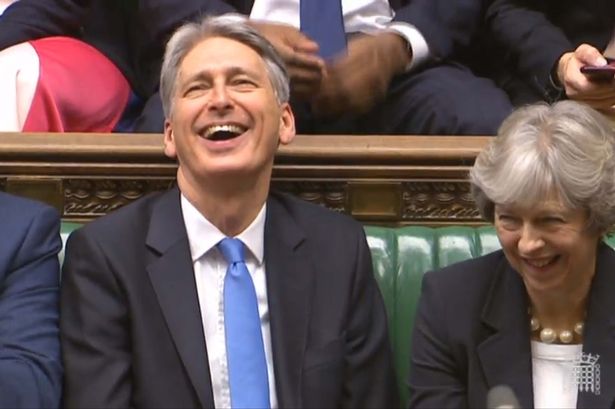Last week, news broke that the Chancellor was looking at ways to fill a black hole of nearly £20bn in the public finances before the budget later this month. Recent analysis shows that the deficit is likely to rise to nearly £36bn in the next four years, double the forecast of £17bn, and a far cry from George Osborne’s election pledge to balance the books by 2020. Pressure is mounting on chancellor Phillip Hammond in the run up to the budget, with many within his own party calling to raise public spending against a backdrop of Labour’s increasing popularity and success in the recent election.
Following several years of George Osborne’s austerity budgets, the deficit has started to shrink in recent years, however many in the public sector have begun to rebel against austerity, wondering when the end will come. This has led to promises to remove the 1% pay cap on certain areas of the public sector.
Phillip Hammond told ITV in October, “We always seek to strike the right balance for fairness to our public-sector workers delivering our vital services and fairness to the tax payers.”
However, the Office for Budget Responsibility (‘OBR’) admitted that productivity levels are significantly lower than before the financial crisis and their estimates for the economic output per hour worked in Britain will need to be lowered. A level closer to the 0.2% productivity growth seen over the last five years is desired, rather than the predicted 1.4%. This drop could undermine confidence in the economy and could lead to a rise in government borrowing, boosting the deficit further.
The OBR’s gloomy forecast makes it harder for Phillip Hammond to justify bowing to union demands and removing the cap on public sector pay. This is likely to create further tension between the Chancellor and the Prime Minister, who are already at odds over a soft Brexit for business; May has publicly conceded that raising public sector pay is a priority. Hammond was previously quoted as saying, whilst he understood that people were “weary” of austerity, “we have to live within our means.”
Following the Conservative party’s poor result at the election, the RCM and other NHS trade unions wrote to May calling for an end to the 1% pay cap, suggesting that this is partly to blame for the party’s failure to secure a parliamentary majority.
The @Conservatives called yesterday's Budget, "fit for the future", but it demonstrates their record of failure with a forecast of more to come.
The reality is they’re not fit for office. #Budget2017 https://t.co/0DJgtkC15k
— Jeremy Corbyn (@jeremycorbyn) November 23, 2017
A report by ‘The Resolution Foundation’ suggested that in order to make raising public sector pay viable, Phillip Hammond will need to increase taxes for either individuals or companies, or borrow more than £100bn over the next four years. Since 2007 the Conservatives have cut corporation tax from 30% (large companies rate) to 18% (effective from 1 April 2020), a record low designed to encourage businesses to invest in the UK. Some argue that reversing the drop in corporation tax could result in a catastrophic impact on the UK’s economy when combined with the UK’s departure from the EU.
Large corporations’ tax avoidance has caught the nation’s imagination in recent years with companies such as Starbucks and Amazon being vilified for their failure to pay their ‘fair share’. However, the government is already clamping down on tax avoidance as Base Erosion Profit Shifting (‘BEPS’) legislation is brought in by the G20. BEPS contains fifteen points designed to prevent companies from shifting profits overseas to avoid paying a fair rate of tax. Any more moves to target large corporations could alienate them and force them away from investing in the UK.
Since taking office the Conservatives have increased personal allowance, raising the point at which low income earners start paying tax, meaning many people on low wages were better off. The Conservatives had hoped that this would secure them the working-class vote, however election results suggest this has not been enough. Nurses, teachers and prison workers who fall very squarely into the ‘squeezed middle’ have seen real-time earnings fall by as much as £6,000 per year. Increasing the personal tax rate from 20% would hit public sector workers and could negate any pay rise received.
For the Chancellor, the budget is on a knife edge. He needs to balance public opinion and gain the support of the electorate, whilst also ensuring that he keeps businesses happy to maintain the economy in uncertain times. The budget will be announced on Wednesday 22nd November.
India Daniel
[Image: Devon Live]

